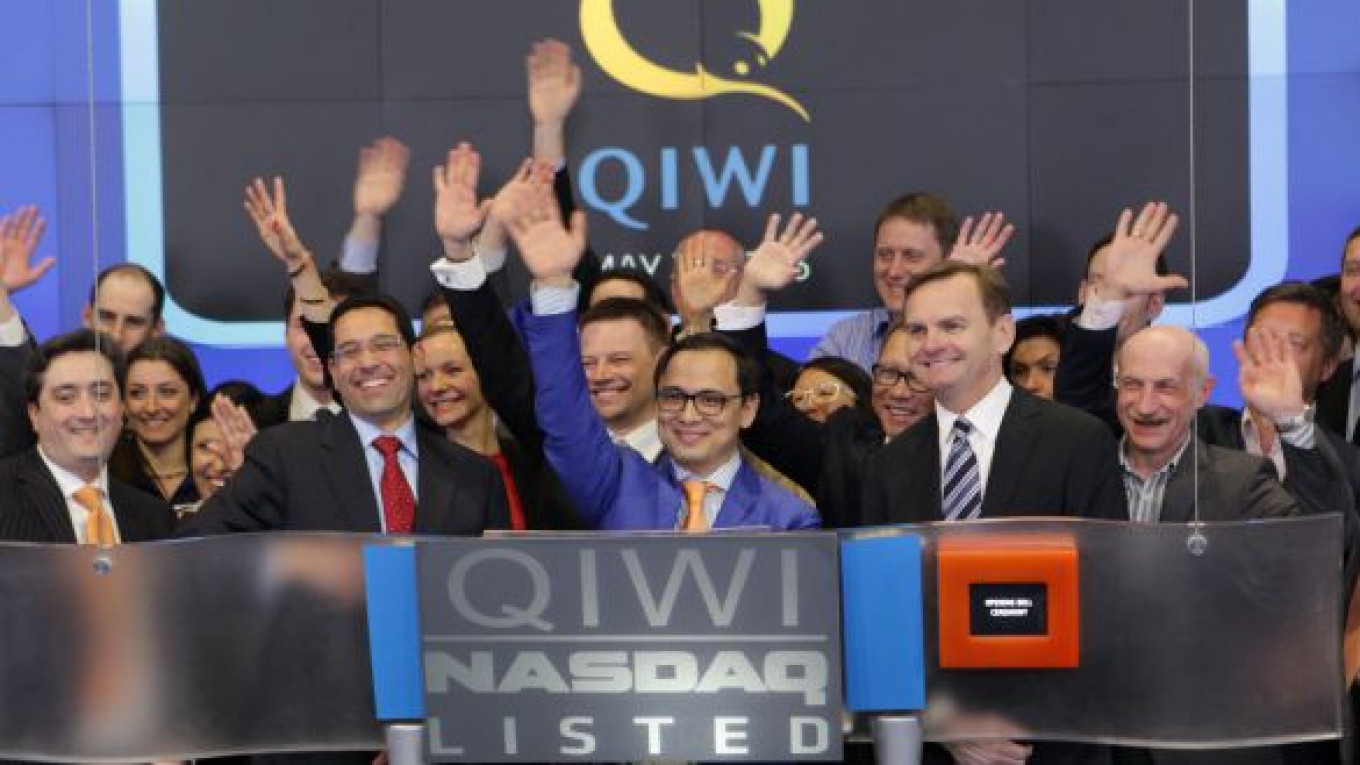Payment services provider Qiwi, known for its blue and orange terminals and rechargeable credit cards, rang the Nasdaq stock market opening bell on Friday, marking the start of an IPO set to yield close to a quarter of a billion dollars. ?
Qiwi's initial public offering consisted of 12.5 million Class B shares in the form of American depositary receipts, priced at $17 each, raising a total of $212.5 million, according to a statement issued Friday. This represents 24 percent of stock issued by the company and brings the total value of the company up to $884 million.
The offering's underwriters, J.P. Morgan Securities and Credit Suisse, have an option of 1.8 million more shares which can be bought from stake holders like Mail.ru Group within a 30-day period to cover excess demand, bringing the total value of the IPO close to $244.4 million.
"We chose Nasdaq because Qiwi is targeting international markets, and for us, the American market is very important — it is the largest stage in the world, and we wish to actively develop here, to become known here," Qiwi Group chairman Andrei Romanenko said in an interview on Friday.
The payment terminal maker raised $215 million, though shares closed flat at the end of Friday’s trading session in New York.
The shares, offered under the ticker symbol QIWI, gained 0.47 percent to close at $17.08 at the end of the first day of trading.
Qiwi is the second Russian technology company to go public in the U.S. following Yandex's IPO on Nasdaq in May 2011.
"We are proud to be another Russian company to list on the American stock exchange. It is a breakthrough for Russian. Western and American investors see value in us and make it possible to trade shares here. We look at it as a contribution to our country's development," Romanenko said.
Going public in the U.S. will promote the company as a serious player in the internet merchant and banking segment, he added. While continuing with their long-term development strategy and the existing product range, the company will consider, analyse and deploy new ideas to fit specific markets, Romanenko said.
Last year, Russia's market for instant payments reached 250 billion rubles ($8.1 billion), Businessweek.com reported Friday.
Qiwi is a leading provider of next generation payment services in Russia. The firm was founded in 2004 with its headquarters in Nicosia, Cyprus. It collects 39 billion rubles ($1.3 billion) monthly from 65 million customers in 22 countries. The company has deployed over 11 million virtual wallets, over 169,000 cash-collecting terminals and enabled 40,000 merchants to receive payments through the Qiwi system. The company went global in 2011 with a rechargeable plastic card co-branded with Visa.
Yandex.Money and WebMoney are Qiwi's main competitors in Russia.
Contact the author at g.moukine@imedia.ru


